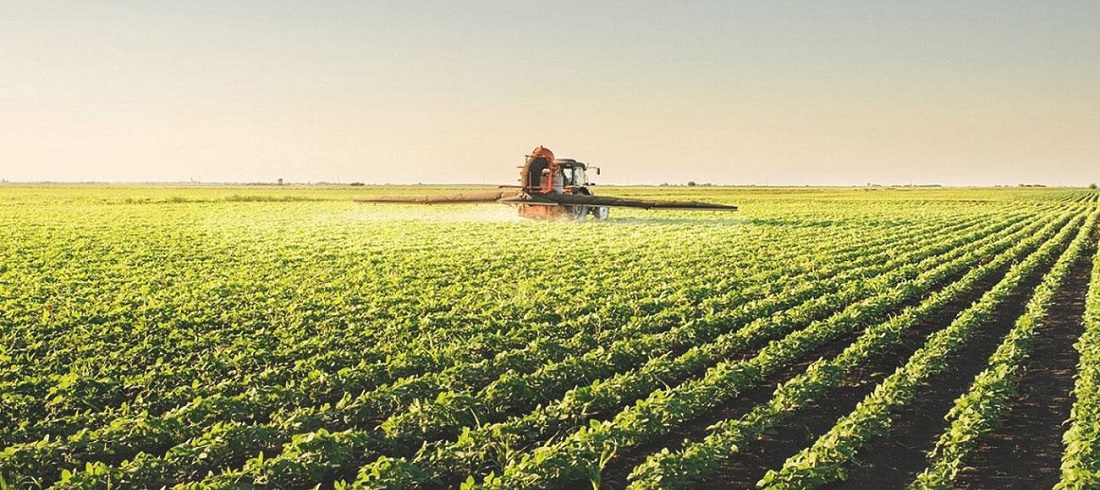
Agribusiness Drives Port Investment in Brazil
Aug, 27, 2024 Posted by Gabriel MalheirosWeek 202434
Agribusiness is one of the main drivers of port investment expansion in Brazil. According to the Ministry of Ports and Airports, terminals have received investments totaling R$42.7 billion over the past six years. This figure is expected to reach R$75.9 billion between 2023 and 2026.
According to a survey by Valor, public authorities and private operators plan to invest nearly R$10 billion in ongoing projects or those nearing commencement in the coming months. These investments will include some of the country’s most important terminals for agricultural exports.
Currently, agribusiness accounts for about 60% of cargo throughput at Brazilian ports. According to the National Waterway Transportation Agency (Antaq), agribusiness-related cargo reached 383 million tonnes in the first half of this year, a 3.6% increase compared to the same period in 2023. Overall cargo throughput grew 4.3% during the same period, reaching 644.7 million tonnes.
Expansion projects are underway in all regions of the country. In the South, the Port of São Francisco do Sul in Santa Catarina, in partnership with Itapoá Port, plans to invest R$ 300 million to deepen the access channel to Babitonga Bay. The Port of São Francisco do Sul is also preparing to lease its grain terminal, which is currently managed by the public administration. The documentation is under review by the Federal Audit Court (TCU).
The investment’s financial arrangement is considered groundbreaking in Brazil. The Port of Itapoá will finance the project with its own funds, while SCPar Porto de São Francisco do Sul will be responsible for its execution. The private partner will be repaid through access channel usage fees plus interest. The proposal has already been submitted to the federal government for approval.
Please refer to the chart below for an overview of the total throughput (exports and imports) registered at the Port of São Francisco do Sul between January 2021 and June 2024. The information was derived from DataLiner, Datamar’s maritime intelligence service.
S. Francisco do Sul | Exports and Imports | Jan 2021 – Jun 2024 | WTMT
Source: DataLiner (click here to request a demo)
Also in Santa Catarina, the Port of Imbituba is investing nearly R$ 100 million to modernize infrastructure, expand operational capacity at the quay, and position itself as an alternative to Santos (SP) and Paranaguá (PR). Agribusiness accounts for 35% to 40% of cargo throughput—both bulk and containerized—at the terminal.
“It’s an economic issue, driven by where it’s cheaper to handle cargo. Imbituba has proven to be an efficient port from an economic standpoint,” said Urbano Lopes Sousa Netto, CEO of SCPar Porto de Imbituba.
Among private operators, Portonave, which owns a container terminal in the city of Navegantes, plans to invest R$ 1 billion to upgrade its quay, which has two berths. The investment aims to deepen the navigation channel to 17 meters, enabling the terminal to accommodate container ships up to 400 meters long in the long term.
“We need to develop and expand this infrastructure because it’s what the market demands, and we want to remain competitive. Investments are ongoing,” said Osmari de Castilho Ribas, Chief Administrative Officer at Portonave.
In Rio Grande do Sul, the state’s hydrographic complex was hit by heavy rains and floods in April and May. Although the largest port terminal in the state, the Port of Rio Grande, did not halt operations, safety concerns necessitated reducing the depth of the access channel, limiting cargo movement.
Rio Grande will need dredging in the short term to restore its original depth. However, in the long term, the terminal plans to modernize. Portos RS, the public company managing the state’s port system, plans to invest R$ 400 million by 2028 to make Rio Grande more competitive, said Portos RS President Cristiano Klinger.
A clear sign that investments in key agribusiness ports are attracting increasing resources was evident on August 21, when the federal government auctioned five port terminals. Unsurprisingly, the most competitive bids were for solid bulk shipping points. Usina Petribu, from the sugar sector, won the REC09 terminal at the Port of Recife with a bid of R$ 500,000.
The competition was so fierce that it went to a live auction, where the sugar mill outbid SCS Armazéns Gerais. The projected investments in the contract are estimated at R$ 2.2 million.
Port Secretary Alex Sandro de Ávila said the federal government is increasingly focusing on the country’s Northern Arc ports. One of the strategies, he said, will be to expand fertilizer reception facilities at ports in the North and Northeast regions. By 2026, ten areas will be auctioned for this purpose, with more than half located in the Northern Arc.
The Growth Acceleration Program (PAC) includes plans for 35 port expansion areas between 2024 and 2026. The estimated public investment, Ávila emphasized, is R$ 14.5 billion. The projection for private terminals in the country (TUPs) is to attract more than R$ 40 billion in investments.
Globo Rural
Clique aqui para ler o texto original: https://globorural.globo.com/especiais/caminhos-da-safra/noticia/2024/08/agro-puxa-novos-investimentos-em-portos-do-pais.ghtml
-
Other Logistics
Dec, 07, 2023
0
Public, private sectors drive infrastructure investment by 20%
-
Automotive
Jan, 09, 2024
0
Suape Port Vehicle Hub Achieves Remarkable 42% Growth in 2023
-
Ports and Terminals
Nov, 21, 2023
0
Wilson Sons inks contract with BP for logistics support cooperation
-
Meat
Oct, 07, 2019
0
Pork exports revenue up 31.6% in September

